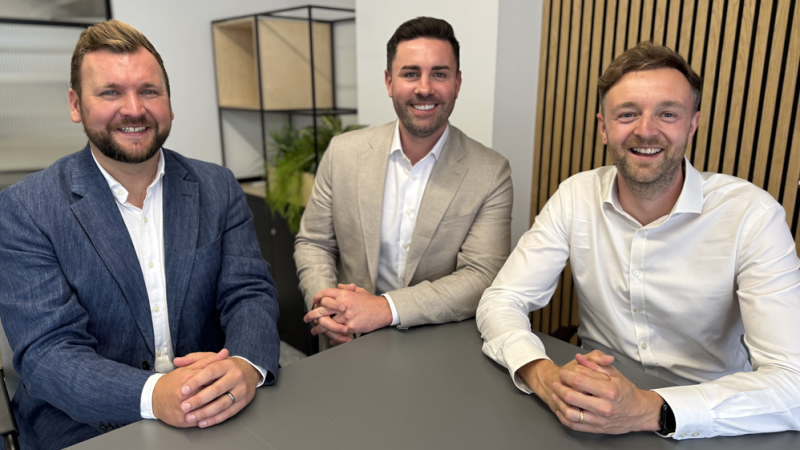Seven years ago, Green Eco Technologies was established to deal with the problem of food waste. It is not a problem a lot of people think about, but once you learn about the scale of the issue it is hard not to. One-third of all food produced for human consumption – that is 1.3 billion tonnes, is wasted every year, according to the United Nations’ Food and Agriculture Organisation. As if that was not bad enough, all that wasted food causes an estimated 14% of the world’s greenhouse gas emissions – particularly methane, which can be 25 times more damaging than carbon dioxide.
With its patented technology for the on-site processing and repurposing of food waste, the Australian firm Green Eco Technologies is offering a response to that problem.
“We are repurposing food waste for multiple applications, including fertiliser, green energy and fodder for animal feed products,” explains Rick Woods, CEO of Green Eco Technologies. “It is fair to say that the latter is still in development, but we have seen significant progress we are on track to see that commercialised by November this year.”
A New Kind of Food Waste Recycling
Of course, food waste recycling is not a new phenomenon in itself, as anyone with a garden compost bin can tell you, but Green Eco Technologies’ products offer unique advantages in the field.
“The stand-out difference between our technology and anything else in the sector is that we retain 90% of protein, nutrients and calories of input food waste, while producing a sanitised, stable residue,” Woods explains. “Because of our patented technology we don’t use high levels of heat the way a tool like a dehydrator might, and we do not discard the value of food waste by flushing it down the sewer.”
But while the technology is proven, enough businesses have had poor experiences with other food waste solutions that Green Eco Technologies has a tough case to make.
“Being a new technology in the sector, a lot of customers and potential customers have already had negative experiences with other on-site processing technology,” Woods says. “Much of it may have been suitable in its day, but not today, so we need to overcome that cynicism around on-site food waste processing.”
To achieve that, Green Eco Technologies has invested considerable time and effort into running case studies across multiple market verticals and geographies, paving the way for a rapid commercial rollout that is already proving rewarding.
“Since start-up, we have proven the technology and delivered on all of our original design criteria,” Woods says. “The product is proven in the marketplace. We have validated the value of our residue through independent academic and consulting resources. Now we are in the process of de-risking our supply chain and getting fully equipped for a rapid global rollout.”
Despite the emphasis on the word “rapid”, Woods is clear that this is not a process that can be rushed. Green Eco Technologies has had to be extremely selective about the partners that it works with in terms of supply chain, distribution, and manufacturing.
One such partner that the firm has found particularly valuable has been IntraTech Group.
“In shoring up our global supply chain, we have developed a strategic partnership with IntraTech Group, who are helping not just sure our supply chain in Australia, but globally,” Woods says.
Green Eco Technologies already has a presence not only in Australia, but also in the UK, UAE, and Singapore. But Woods’s eyes are on opportunities still further afield.
Sharing a Vision
For Green Eco Technologies to expand in the ways Woods envisions, it will need people, and in finding those people there is one quality Woods prioritises above all others.
“Fundamentally all of the people in our business have a passion for sustainability, and that’s one of the key entry criteria for the business,” Woods says. “We are looking for trailblazers, because setting up this business has not been for the faint-hearted. It has never been what I would call a run-and-maintain business. We have been growing this from square zero, and so we need people of good character and good values.”
Ultimately, Woods wants the people he brings into Green Eco Technologies to have a shared vision, to want to work towards a common goal and to solve a common problem that has a huge global impact.
“We all have a common vision in that we believe in what this technology can achieve in the marketplace,” Woods says. “We want to turn what has historically been looked on as a waste product into a genuine resource that can be meaningfully used in the circular economy.”
Green Eco Technologies has the technology and the vision to cost-effectively support businesses in minimising the impact of their organic waste with innovative, efficient, and beneficial solutions for converting and re-purposing food waste on-site. What is more, it can do this while working to support the United Nations’ 17 Sustainable Development Goals (SDGs) to conserve precious and diminishing resources and preserve the planet for future generations.
The results speak for themselves. Green Eco Technologies has already diverted more than 6,653,297 kgs of food waste from landfill sites, resulting in an equivalent reduction of 10,313 tonnes of greenhouse gases. That is the equivalent of 1,37,192 cars taken off the road a day. At the same time, Green Eco Technology solutions have generated enough green energy to power 1,197,593 houses a day.
“To me, the future is about saving the customers money, reducing their carbon footprint and repurposing their waste product into a valuable resource,” Woods reiterates. “The next ingredient we want to add to that is scale. We would like to see this technology adopted globally, and we have already begun the work on that.”







